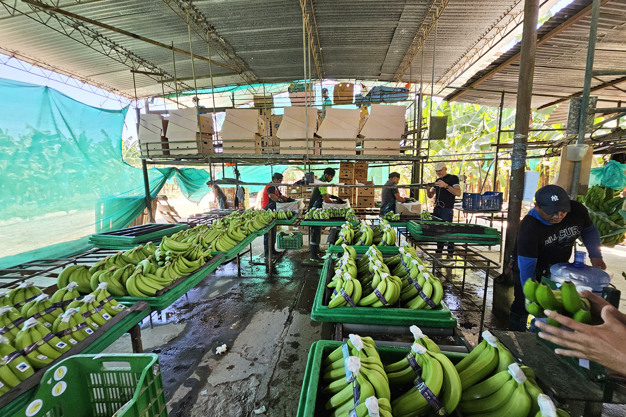At the dawn of this century, numerous small-scale banana producers in the Peruvian province of Sullana, often with plantations not exceeding one hectare, struggled to receive the full agreed-upon amount for their produce sales. It was a consequence of a clear lack of integration and organization, necessary to assert their presence in the markets. This is the context in which the APPBOSA cooperative was founded in 2003. Initially, it had 96 members and it secured a Fairtrade certification the following year, which significantly improved their prospects for fair remuneration.
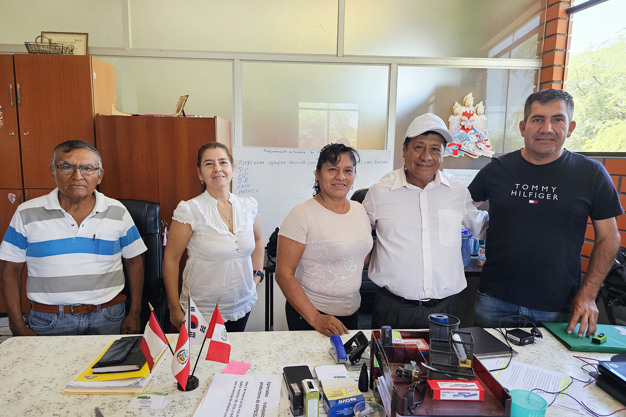
Part of the APPBOSA executive team (from left to right): Ermitaño Socola (board member), Marcia Herrera (certification manager), Flor de María Alvarado (minutes secretary), Valentín Ruiz (president) and Percy Arnaldo Ordinola (vice president).
"Today we have 556 members, who collectively own approximately 700 hectares of banana plantations. The cooperative has set a maximum of 5 hectares of land ownership to join, yet many of our members have just half a hectare or even less," says Valentín Ruiz Delgado, president of APPBOSA.
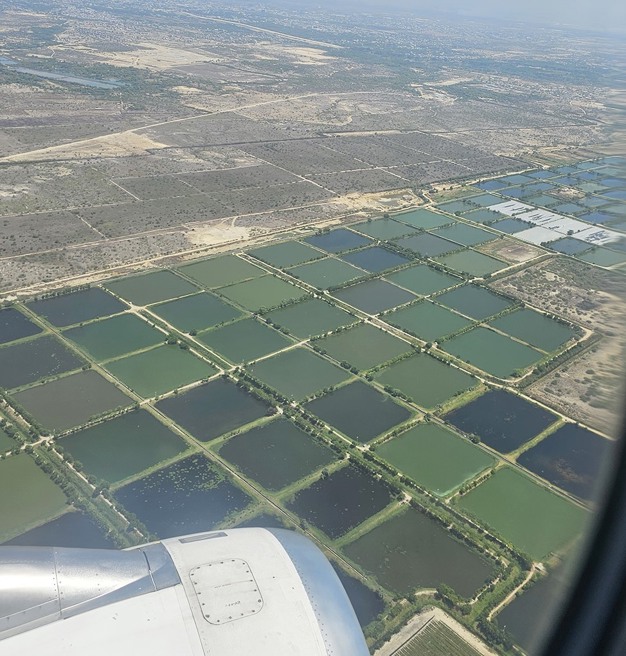
From above, it's clear that Piura is a desert area. The advantage of the dry air is that it greatly reduces disease pressure.
Stability for small producers
The cooperative, which is solely devoted to the production of organic bananas, offers its members stability by ensuring access to international markets and a stable price throughout the year, in addition to an extra dollar per box of bananas guaranteed by the Fairtrade certification, as explained by Aingeru García, the cooperative's manager. "For the last decade, we have secured the highest market price for producers here in Peru."
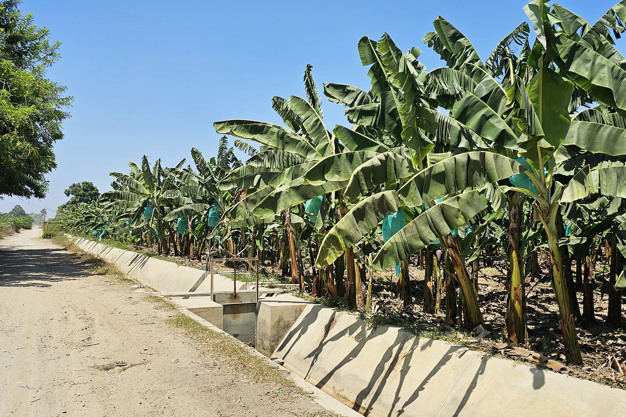 Irrigation channels have been built with the aid of foreign funding.
Irrigation channels have been built with the aid of foreign funding.
"In 2005, also thanks to the cooperative's presence, electricity arrived in this area. There's also a potable water system, which is also accessible to a part of the population. Roads have been improved, and living conditions are better, not just because of the business stability, but also because of having access to health services and educational support for children," says Marcia Herrera Reto, certification chief.
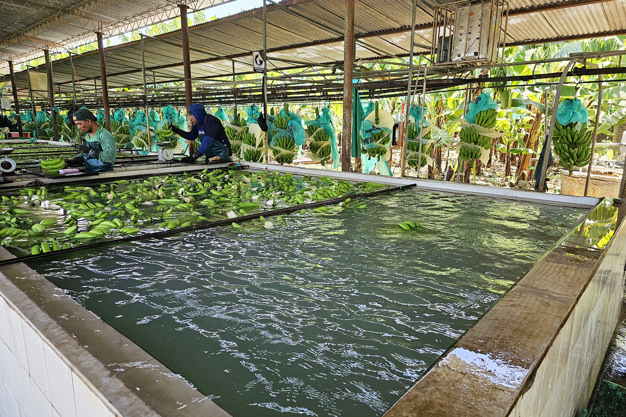
The packing station is located amidst the plantations. Most producers have between 0.5 to 2 hectares planted and live reasonably well off it.
Banana profitability has declined in recent years
"While we have done quite well for many years, with families able to live off the income from their plantations, the rise in input costs since the outbreak of the coronavirus pandemic and the war in Europe, not just for cultivation, but also for the harvesting and packing processes, has led to the disappearance of some of these microenterprises," says the certification chief. She adds that due to the declining profitability of bananas in recent years, the cooperative is considering diversifying its business with other crops. "In the short term, however, we are working intensively to recover our production levels, as now, due to weather phenomena, such as the Yaku cyclone and the El Niño Costero, we have dropped from 1,600-1,700 boxes per hectare to 1,300 boxes."
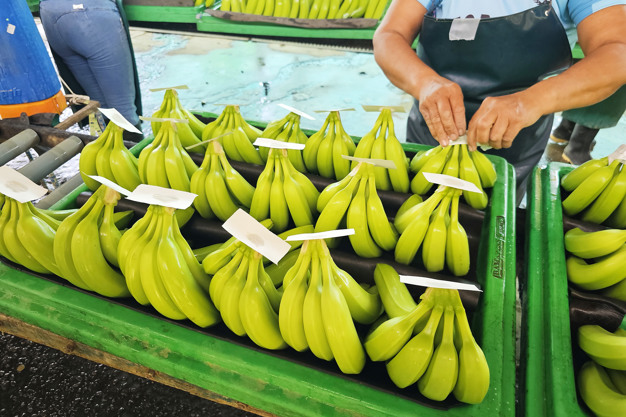
The fruit's destination markets are the US, Canada, South Korea and almost all western European countries, to which the cooperative ships a uniformly high-quality product. This is possible thanks to the agronomic management instructions provided by the technical team to all members, as well as the uniform packaging standards upheld by APPBOSA.
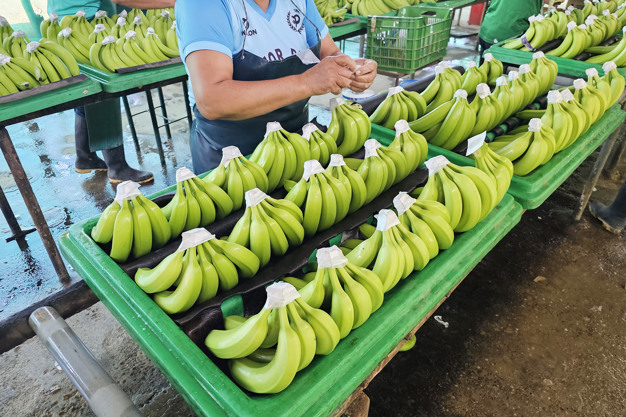
"Currently, there is more supply than demand in the international market"
With the goal of getting better prices in the international market, the cooperative strives to differentiate itself with its own brand and the Small Producers label, according to Aingeru García. "But the truth is that, at this time, it's quite difficult to achieve price increases. Some years ago, Fairtrade encompassed a large part of the demand, meaning that when someone came here to buy organic bananas, they had to pay the same price as those certified as fair trade. However, at the moment, the price of organic produce stands below the fair trade price. Our priority is to sell everything as fair trade and not having to sell some containers as merely organic at a lower price."
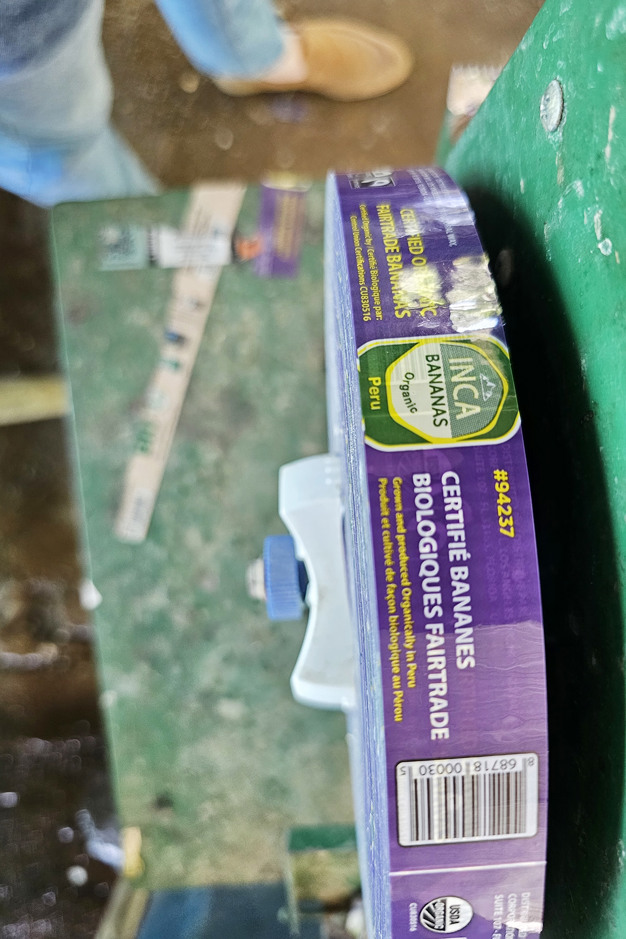
At the request of customers, bunches are provided with a band containing the desired information.
There used to be a significant difference between the prices of conventional and organic products, but now that applies to organic and fair trade crops. "Years ago, we sold at a higher price than the fair trade minimum, but currently there is more supply than demand, and we are all selling at the minimum price. At this time, there is the belief in all Latin American countries that the price of bananas, whether conventional or organic, should rise, as it is dropping to unsustainable levels," says the cooperative manager.
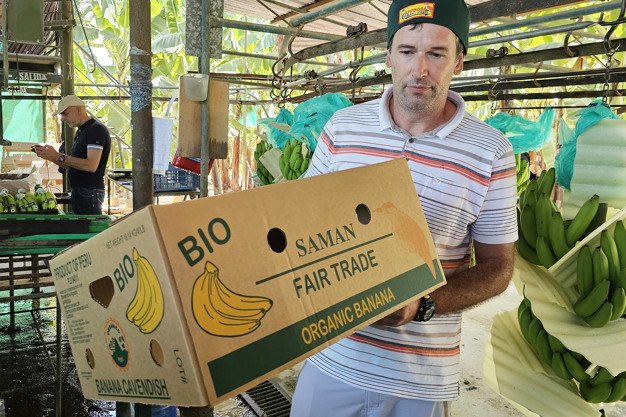
 For more information:
For more information:
Valentín Ruiz Delgado (president)
APPBOSA
Sector Nueva Esperanza S/N, Samán
Sullana, Piura, Peru
Tel.: +51 945040766
appbosa@yahoo.com
www.appbosa.com.pe
